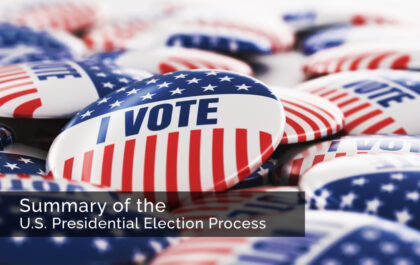Knowing how to handle an anxiety attack can be quite helpful if stress is a frequent part of your life. When the anxiety finally reaches the point where it causes an attack, many people are at a loss for what to do. You can handle things better if you know how to calm down quickly.
Table of Contents
Anxiety attacks: what are they and how do they happen?
Feelings of sudden and extreme fear, typically in reaction to a stressful circumstance, are known as panic attacks. They are not always predictable and often occur for no apparent cause.
These may include:
- Having a disconnection from the real world.
- discomfort in the chest.
- Rapid or erratic heart rate.
- Shortness of breath or rapid breathing.
- Feeling faint, unsteady, or shaky.
- Stomach cramps
- Sudden diarrhea.
- Flashes of heat or cold, or both, may occur.
- Dry, cold palms.
- The sensation that you can’t swallow or that you’re choking.
- Lack of feeling or sensation.
Instances of panic are extremely prevalent.
The Best Ways to Handle Panic Attacks
Physical and mental exhaustion are two common side effects of panic attacks, and they can be challenging to control. To help us deal with anxiety and panic attacks, we turned out to the local community for advice. What follows is a list of suggestions you made that could be very useful.
1. Remember it will not last long
Despite how frightening it may feel, it can help to keep in mind that a panic attack is only temporary and does not pose any real health risks. Throughout the first 10 minutes, the symptoms of a panic attack will often peak before gradually dissipating.
2. Rely on your senses
Several psychologists agree to pay attention to your outward reality rather than the symptoms. Focus on the here and now by making use of all of your senses. Wonder about the world around you. When you close your eyes, what do you see, hear, feel, touch, smell, and taste?
You can now include tactile objects in your toolkit, such as a stress ball, fidget spinner, or squishy toy.
3. Relax and breathe deeply.
Hyperventilation is a common characteristic of panic attacks and can make the situation even more frightening, but deep breathing can help alleviate the symptoms of panic and calm the person down.
One group practiced deep breathing, while the other practiced diaphragmatic breathing. Concentration and mental health improved for those who focused on breathing for 20 hours.
The decreased cortisol levels in their blood were further evidence that they were under less stress. Although the individuals did not suffer from panic disorder, the techniques may be useful for those who suffer from panic attacks.
4. Tell a trustworthy friend about your worries.
Don’t try to push your nervous thoughts out of your mind, as this will just make you feel worse. It is a good idea to discuss your thoughts with with someone you trust. They may be able to give you some perspective.
5. Calm an Anxiety Attack Physically
It’s simple to tell someone, “Just chill out.” It is evident that by focusing on a certain point and holding yourself during an anxiety episode, you may notice that certain muscles tighten. You should actively contract and then release those muscle groups.
If you’re having an anxiety attack and your hands, feet, or jaw just won’t cooperate, try focusing on another region of your body, such as your shoulders or toes. Several of the best doctors agree that breathing deeply and relaxing will help you deal better.
6. Choose a point of concentration
During a panic attack, some people find it beneficial to concentrate intently on one single subject.
The clock’s hand, for instance, can jerk and look a little off as it ticks. Think out loud on the object’s size, shape, color, and pattern. You will be successful in relieving your anxiety if you focus your complete attention to this.
7. Turn on some Music
Music has been demonstrated by scientific research to be an efficient and quick method of relieving stress. Based on the results of a study published in Psychoneuroendocrinology, music can be “considered a means of stress reduction in daily life, especially if listened to for the cause of relaxing.”
If you can tear yourself away from the source of your anxiety, try listening to some soothing music. If you’re feeling overwhelmed at work, this could be a great way to unwind for a while with some soothing tunes at your desk.
Conclusion
It’s up to you to experiment with these ideas. Cognitive Behavioral Therapy and Dialectical Behavioral Therapy are two types of therapy that can be beneficial for managing anxiety and panic attacks, and you may wish to consult a mental health expert for more assistance. You can learn these tactics and determine which ways work best for you to manage your panic attacks with the assistance of the best psychologist.
FAQs
1. Why is it crucial to learn how to handle anxiety?
One of the most prevalent mental illnesses is anxiety. The physical body is vulnerable to the mental stress of anxiety. Studies have shown that those with anxiety disorders are at a higher risk for developing additional physical health issues. Thus, if you take care of your anxiety, you’re also taking care of your body.
2. What changes to one’s routine can help alleviate anxiety?
Modifying your lifestyle by getting more sleep, relying on your friends and family more, learning to cope with stress in healthy ways, and exercising regularly may also be beneficial. Keep in mind that it could be a while before you feel the effects of these adjustments on your anxiety.
3. Does stress and worry affect you regularly
Feeling anxious every once in a while is normal. Concerns about health, finances, and relationships with loved ones are common. Anxiety disorders, on the other hand, go beyond normal levels of nervousness, though. Anxiety disorders are chronic conditions characterized by persistent and, in some cases, worsening anxiety over time.
Related posts
When was the first presidential election in the US?
The election process in the world’s most powerful nation, the US, has come a long way. Various amendments have been made to the Constitution that allowed black men, white women and other disadvantaged groups to participate in the elections. Further amendments during the 60s and…
Tips & Trick For Healthy Glowing Skin
Lorem ipsum dolor sit amet, consectetur adipiscing elit. Nam laoreet, nunc et accumsan cursus, neque eros sodales lectus, in fermentum libero dui eu lacus. Nam lobortis facilisis sapien non aliquet. Aenean ligula urna, vehicula placerat sodales vel, tempor et orci. Donec molestie metus a sagittis…
My Fight With Depression. Concussions
Lorem ipsum dolor sit amet, consectetur adipiscing elit. Nam laoreet, nunc et accumsan cursus, neque eros sodales lectus, in fermentum libero dui eu lacus. Nam lobortis facilisis sapien non aliquet. Aenean ligula urna, vehicula placerat sodales vel, tempor et orci. Donec molestie metus a sagittis…
Top 10 most visited tourist places in the world
Lorem ipsum dolor sit amet, consectetur adipiscing elit. Nam laoreet, nunc et accumsan cursus, neque eros sodales lectus, in fermentum libero dui eu lacus. Nam lobortis facilisis sapien non aliquet. Aenean ligula urna, vehicula placerat sodales vel, tempor et orci. Donec molestie metus a sagittis…
How Digital Health Technology Is Beneficial?
Digital health revolves around the usage of diverse technological platforms including mobile health, teen health, configurable remote patient monitoring, etc to improve the connection between the patients and the doctors. Across the healthcare system, the horizon and scope of digital health have helped create opportunities…
How Latest Farmtrac Tractors are Improving Farming in India?
India mostly relies on farming, and a large part of the population depends on it for their livelihoods. Recently, there’s been a big shift towards using modern farming techniques and machinery to make farming more productive and efficient. A good example of this is the…
Dispelling Myths: Demystifying Rx Waste and Expiration Dates – WasteX Pharmaceutical Waste Disposal Separates Fact from Fiction
The specter of “expired” medication looms large, conjuring images of potent chemicals wreaking havoc on water sources and ecosystems. But before you panic toss that bottle of pills, let’s delve into the truth about pharmaceutical waste and expiration dates, separating fact from fiction. At WasteX…
Sustainable Living in Memphis: Green Initiatives and Eco-Friendly Hotspots
Memphis, a city known for its rich cultural heritage and vibrant atmosphere, is increasingly becoming a hub for sustainable living. As environmental awareness continues to grow, residents and businesses in Memphis are embracing green initiatives and fostering eco-friendly practices. Let’s explore the city’s commitment to…
Today's pick
Hot topics
Stay connected
Meet the Author

Gillion is a multi-concept WordPress theme that lets you create blog, magazine, news, review websites. With clean and functional design and lots of useful features theme will deliver amazing user experience to your clients and readers.
Learn moreCategories
- Animals (7)
- Apps & Softwares (8)
- Automotive (8)
- Beauty (8)
- Business (141)
- Cars (12)
- Cartoon (3)
- Cook (4)
- Cooking (1)
- Design (8)
- Economy (6)
- EDUCATION (25)
- Entertainment (16)
- Fashion (23)
- Fitness (2)
- Food (16)
- Gaming (51)
- Guide (20)
- Health (119)
- Home (52)
- Home improvement (12)
- Interior (3)
- Law (16)
- Life (1)
- LifeStyle (99)
- Marketing (5)
- Motivation (9)
- Movie (6)
- Movies (1)
- Music (3)
- News (8)
- Painting Art (1)
- People (15)
- Photography (7)
- Review (113)
- Services (7)
- Social Media (6)
- Sport (9)
- Sports (12)
- Style (10)
- Swimming (1)
- Tech (125)
- Travel (26)
- Uncategorized (17)
- Vape (5)
- Western (3)
- World (2)










